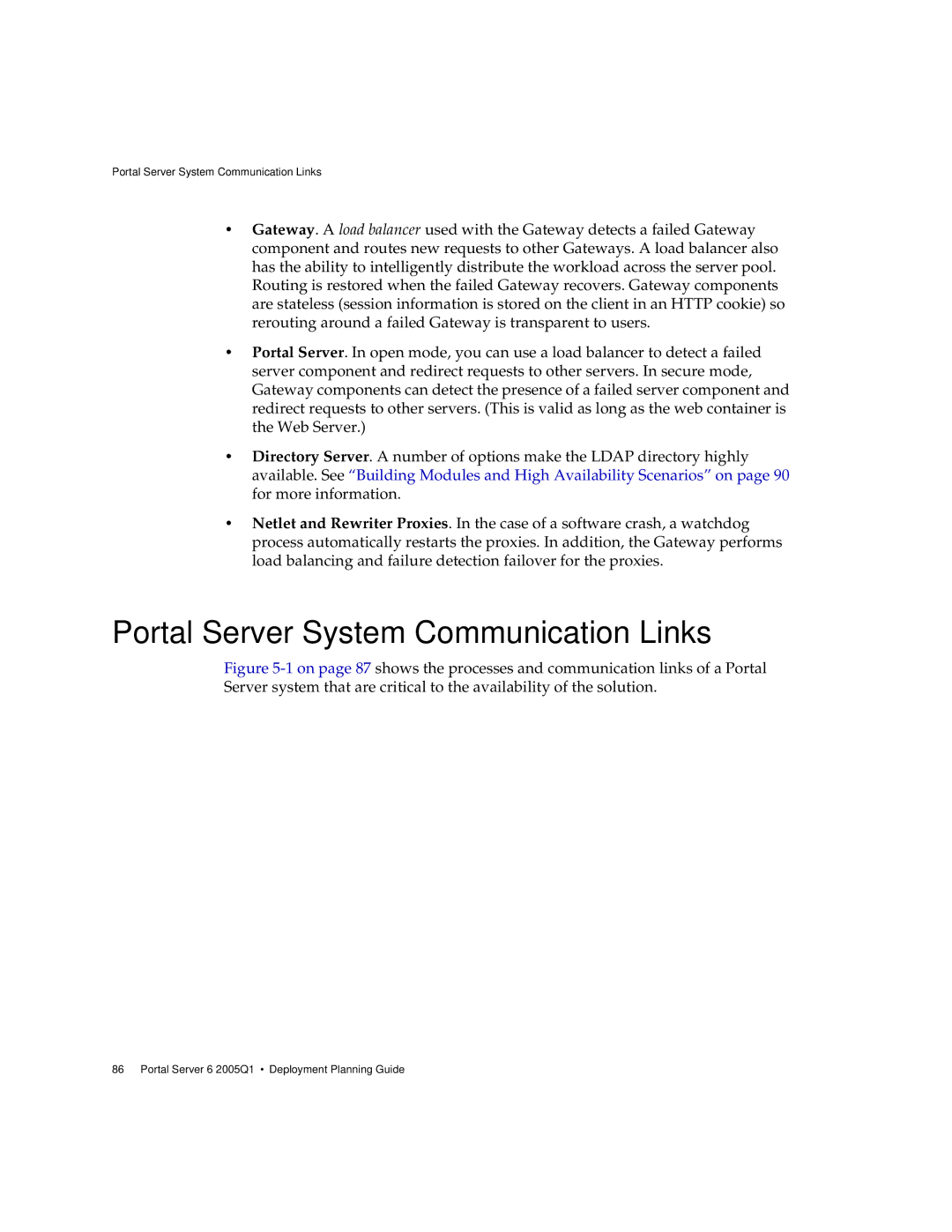Portal Server System Communication Links
•Gateway. A load balancer used with the Gateway detects a failed Gateway component and routes new requests to other Gateways. A load balancer also has the ability to intelligently distribute the workload across the server pool. Routing is restored when the failed Gateway recovers. Gateway components are stateless (session information is stored on the client in an HTTP cookie) so rerouting around a failed Gateway is transparent to users.
•Portal Server. In open mode, you can use a load balancer to detect a failed server component and redirect requests to other servers. In secure mode, Gateway components can detect the presence of a failed server component and redirect requests to other servers. (This is valid as long as the web container is the Web Server.)
•Directory Server. A number of options make the LDAP directory highly available. See “Building Modules and High Availability Scenarios” on page 90 for more information.
•Netlet and Rewriter Proxies. In the case of a software crash, a watchdog process automatically restarts the proxies. In addition, the Gateway performs load balancing and failure detection failover for the proxies.
